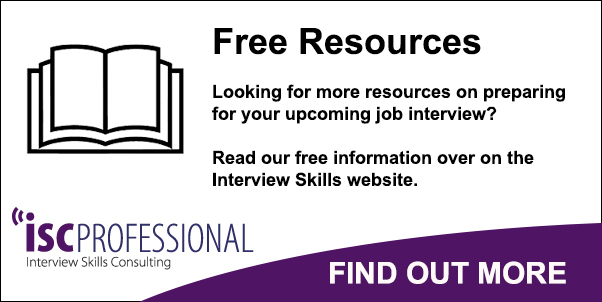Interview Checklist: Are You Ready For Your Job Interview?
A job interview is your opportunity to impress an employer and convince them that you are the right candidate for a job, but have you ticked every box on the checklist before you step into the interview room?
Preparing carefully for your interview can help you to make the most of this opportunity, and the job interview checklist below could help you calm your nerves, and ensure you’re fully prepared. Follow these tips to make sure you are ready to ace your next job interview.

☐ Research the company.
A job interview is your chance to show that you have done your homework. You need to show that you understand the company’s goals and ethos, as well as what will be expected from you if you get the job. Use the company’s website to find out as much as possible about its activities and structure.
☐ Research the role.
It’s important to know everything you can about the role you’re interviewing for. Chances are you will be asked what you know, and how your particular skillset is applicable to the job in question. If you’re unaware of the responsibilities and tasks that come with the role, then you will come across as underprepared, and not the best fit for the role. It’s important to show you are passionate about filling the role.
☐ Prepare some questions.
Based on your research, prepare some questions about the role or the projects that the company is currently working on.
☐ Prepare answers to common interview questions.
Spend some time before the interview thinking about how to respond to questions such as “what is your greatest strength/weakness?” Backing up your responses with specific examples can help you to show your strengths more clearly.
☐ Rehearse your responses.
Once you have prepared your answers, practice delivering them out loud so that you sound confident and well-prepared.
☐ Plan your approach to difficult topics.
If you have been out of the workforce for a while, or you were fired from your last role, then you need to decide in advance how to deal with this difficult topic. Focus on the positive aspects of your time out of work, such as any time you spent volunteering, studying, retraining or caring for family members.
☐ Practice looking calm and confident.
Confidence can look very attractive to employers. Practice giving a firm handshake, looking the interviewer in the eye and speaking without fidgeting or stammering.
☐ Find strategies to manage nerves.
Practice using relaxation techniques to calm your nerves in preparation. Some people use guided meditation recordings, while others use relaxing music or deep breathing techniques.
☐ Dress to impress.
Choose formal, conservative clothing for your interview. Make sure your hair is clean and neat and your makeup, if you wear any, is subtle.
☐ Check out the interview location.
It’s very important to be on time for an interview to show you can be punctual. Travel to the interview location in advance to make sure you know how to get there and how long the journey takes.
☐ Check you have the right documents.
Some companies ask interviewees to bring documents with them, such as portfolio pieces or administrative paperwork. Make sure you bring everything that you have been asked to provide, along with a copy of your resume in case you need to refer to it.
☐ Find out who is interviewing you.
If possible, find out in advance who will be conducting the interview. Then, check out the interviewer’s LinkedIn profile to find out what their interests are; this might give you ideas of questions to ask or topics to discuss during the interview.
☐ Have a friend or relative give you a mock interview.
There is only so much interview preparation that you can do on your own. Ask a friend to play the role of the interviewer and ask you some questions. Make the situation as realistic as you can by wearing your interview clothes and acting professionally as soon as you walk into the room.
For more information read our free resources, whether it’s what to research about your role, or best practices when it comes to body language.
If you’ve managed to check everything off this list in depth, then it’s more than likely you’re ready for the interview! Good luck.

